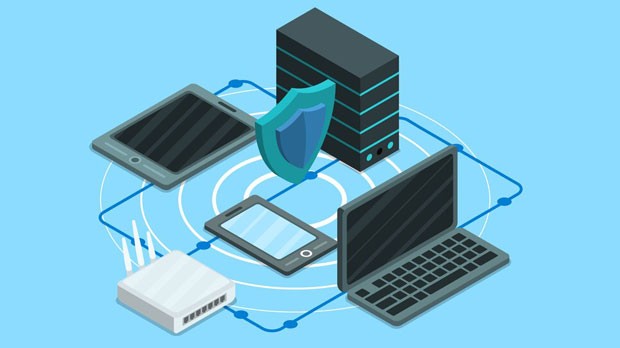1. Introduction to PionLogin PionLogin is an Antidetect browser tool designed to help users manage multiple accounts easily and optimize their workflow by integrating powerful automation features.It allows for the adjustment of various fingerprint parameters to ensure each browser profile is unique and acts like a separate device. These parameters include:• Operating Systems (Windows, MacOS, Linux, iOS, Android, etc.)• Browser Fingerprints (User Agent, IP address, Timezone, WebRTC, etc.)• Hardware Specifications (CPU, RAM, WebGL, etc.)• Locale Settings (Fonts, Timezone, Language, etc.)2. Why PionLogin Was Created PionLogin addresses the fundamental challenge of managing multiple online accounts safely. Leveraging its advanced antidetect browser technology, PionLogin creates an isolated operating environment for each account - as if each one is running on a distinct, physical device. This not only guarantees security and prevents detection of account linkage but also enables large-scale automation and expansion of marketing, e-commerce, and team operations.We created PionLogin not just as a tool, but as a comprehensive solution to help individuals and businesses digitize their operations, scale safely, and efficiently in an increasingly competitive online environment.• Solves the problem of managing multiple accounts easily.• Ensures security and prevents detection by simulating unique browser parameters, even with many accounts on a single device.• Saves time by automating repetitive tasks. 3. PionLogin's Vision and MissionVisionTo become one of the leading companies in Vietnam in the field of software supporting multi-channel online business, accompanying the digital transformation process of small and medium-sized enterprises.MissionTo provide smart, secure, and flexible software solutions that help businesses optimize resources, enhance operational efficiency, manage accounts, and sustainably scale their business on the Internet.Core Values• Product Quality is the Top Priority: We continuously refine our technology, update features, and listen to users to deliver a stable, effective, and friendly experience.• Innovative Mindset: Always proactively improving and innovating to adapt to the rapid changes in the digital market.• Customer-Centric Approach: Every PionLogin solution is developed based on real customer needs, aiming to solve specific problems with optimal efficiency.4. Solutions Provided by PionLoginPionLogin is a robust antidetect browser management platform, offering a comprehensive ecosystem of solutions for individuals and businesses operating in e-commerce, affiliate marketing, digital marketing, and multi-account management. Here are the key values PionLogin delivers:• E-commerce: Supports safe and automated simultaneous management of multiple accounts on e-commerce platforms like Shopee, Lazada, Tiki, etc. Users can easily bulk upload products, sync orders, respond to reviews, and optimize customer interaction without manual account switching. This solution saves time, minimizes the risk of account suspension, and maximizes the efficiency of multi-store operations.• Affiliate Marketing: PionLogin allows for the creation and control of a large number of accounts for affiliate campaigns across various platforms. The measurement and statistics features help users track promotion effectiveness in detail for each ref link, optimizing conversion rates and campaign costs.• Digital Marketing: Combined with AI technology, PionLogin helps analyze user behavior and gather customer insights, thereby personalizing content and enhancing the effectiveness of digital communications.• Multi-Account Management: Each account is stored as a separate "profile," making it easy to operate and share with teammates without disclosing cookies or passwords. This ensures absolute security while optimizing the management and control of large-scale accounts.• Team Member Management & Permissions: A powerful user administration system helps businesses easily allocate access rights, control resources, and assign tasks to each member for specific projects. This is especially useful for marketing teams, agencies, and remote collaborative work models.• Traffic Automation: PionLogin integrates AI technology to simulate real user behavior, thereby naturally distributing traffic according to a set strategy. The system allows you to set up scenarios for web browsing, interaction, and link clicks, helping to increase genuine traffic to your website, product, or media campaign without being flagged by platforms for fraudulent activity. 5. Who Should Use PionLoginOur philosophy is to leave no customer behind; thus, both our products and our support team are high-quality and easy to use. All customers who want to protect their accounts, scale multiple accounts, and need to use automation tools across various industries can use the software.It is particularly essential for customers who face restrictions when running multiple accounts under the same:• Device with multiple accounts (e.g., numerous Facebook accounts on a single computer).• Network lines with multiple connected devices (e.g., many people sharing the same VNPT network in an office or home).• Geographical area with multiple devices in the same location (e.g., multiple devices in Hanoi or Ho Chi Minh City).• Countries where multiple accounts use platforms like Amazon, eBay, etc. (which can cause difficulties in logging in and operating multiple accounts). 6. Practical Applications of PionLoginPionLogin is more than just a tool; it's a launchpad for success across various fields:• Dropshipping & E-commerce: Nurture and manage hundreds of seller accounts on Amazon, eBay, Walmart, Etsy... without fear of detection. Scale your business and profit effortlessly.• Running Ads (Advertising): Manage a fleet of advertising accounts (vias) on Facebook, Google, TikTok... with absolute safety. Each account is an independent entity, minimizing the risk of a "sweep," giving you confidence to run campaigns.• Crypto & Web3, Airdrop: Create and nurture multiple wallets to "farm" airdrops and retroactive claims. Manage numerous Twitter, Discord, and Telegram accounts to participate in events, automate task operations, and collect rewards and tokens.• Account Nurturing & Social Media Management: Easily manage a large number of Facebook, Instagram, TikTok, Telegram, X (Twitter)... accounts to boost interaction, build communities, and serve marketing campaigns effectively.• Automating Repetitive Tasks: Automatically input data, scrape data, compile information from websites, auto-post, comment, share... Free yourself from tedious manual tasks, optimizing time and resources. 7. What Makes PionLogin Different• Dedicated Technical Team: Always listens to customers and continuously updates new features.• Free Access to Core Features: All core features are free (Synchronized Operations, Proxy integration, Team Member management) without needing an upgrade.• Generous Free Profile Allocation: Offers a large number of free profiles, making it easier for the community to introduce the product to clients.• Easy Script Writing: Write automation scripts easily with an intuitive drag-and-drop interface (even non-coders can easily write scripts).• Supports SOCKS5 UDP Proxy: PionLogin supports attaching SOCKS5 UDP proxies, offering better flexibility and connectivity. 8. PionLogin Development Team• We own a seasoned product development team with years of experience in the field of antidetect browsers and related software solutions. We constantly listen to customer feedback and continually update and upgrade new features to provide the best experience.• Our customer support team is enthusiastic and quick, providing focused answers and easy-to-understand guidance for both new customers and those already familiar with antidetect browsers. 9. Contact Information• Customers and partners seeking consultation or collaboration can contact PionLogin through our social media channels. Our customer support team is always ready to answer your questions.• Official Website: https://pionlogin.net/• PionLogin Communication Channels:○ Facebook: https://fb.com/pl.vietnam.official○ Telegram: https://t.me/pionlogin○ Youtube: https://youtube.com/@PionLogin○ Tiktok: tiktok.com/@pionlogin○ X: https://x.com/PionLogin○ Threads: https://www.threads.com/@pionlogin○ Instagram: https://www.instagram.com/pionlogin/PionLogin is a bright choice for a tool supporting customers across many fields, from MMO, Airdrop, Marketing, E-commerce,... Experience PionLogin now to see what a quality tool truly is!
Oct 16, 2025



































































